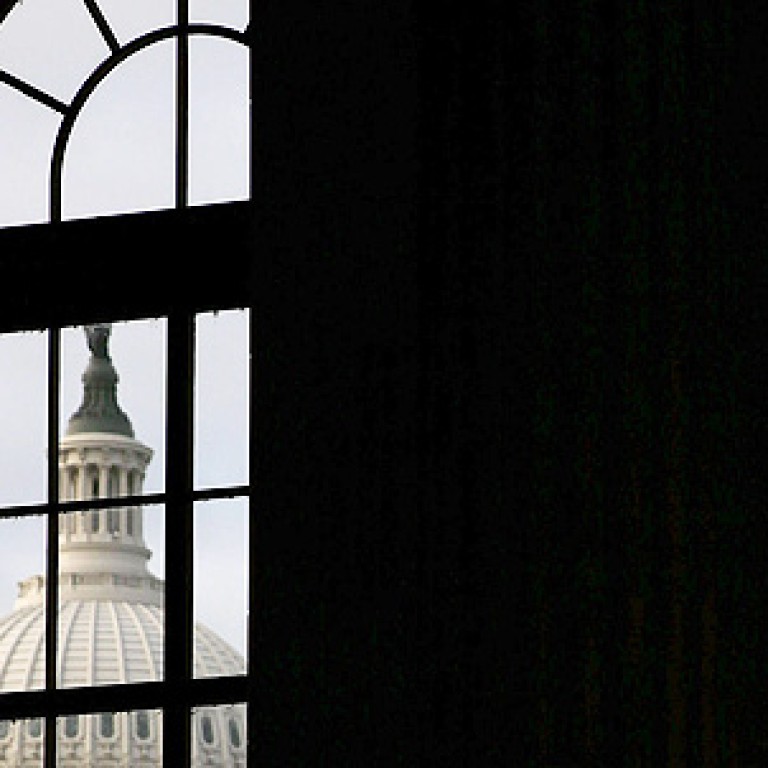
The damage is already done to Product USA
Default or not, the United States has already endangered both its credit rating and its standing in the world
Credit ratings agencies may not wait for a default to downgrade the US government's creditworthiness.

Fitch promised to resolve the status before the end of March, depending on the outcome of the political squabbling, which could extend into next year even with a short-term resolution now. And S&P does not rule out a downgrade.
For now, it's a warning that politicians are showing just why US bonds no longer are considered to be worthy of the gold-plated AAA status. The AA designation means that US bonds are now considered a riskier investment than those issued by Canada or Germany.
S&P spokesman John Piecuch said it was "worth reiterating that this level of discord, which is not consistent with a AAA rating, is a dominant reason the US sovereign rating is no longer rated AAA".
Financial markets weren't waiting for the downgrade, which reflects a greater risk of default and might push interest rates up.
Big money-market players such as Fidelity Investments and JPMorgan Chase have been dumping short-term US bonds. Citigroup spooked the markets on Tuesday by telling its customers it was in good shape because it had unloaded US bonds.
That's hardly a vote of confidence and investors buying bonds that mature in the next six weeks were demanding on Tuesday an interest rate equal to what they'd usually seek to hold a riskier six-month bond. It all leads to the question: Why hasn't there been another downgrade?
At Fitch, the signals in the current fight are warning signs that are worth watching closely.
"The US risks being forced to incur widespread delays in payments to suppliers and employees, as well as social security payments to citizens - all of which would damage the perception of US sovereign creditworthiness and the economy," the Fitch statement said.
Fitch added that the US standing in the world was at stake, too.
A self-serving Washington has abused its superpower status and introduced even more chaos into the world by shifting financial risks overseas
"The prolonged negotiations over raising the debt ceiling … risk undermining confidence in the role of the US dollar" as the world's top currency, Fitch said, "by casting doubt over the full faith and credit of the US".
Moody's Investors Service was more optimistic, citing a much lower deficit than was the case in 2011 and an improving economy.
"We believe the government would continue to pay interest and principal on its debt even in the event that the debt limit is not raised, leaving its creditworthiness intact," Moody's said in an October 7 report.
A spokesman declined further comment on Tuesday.
A ratings downgrade means that some big institutional investors no longer can hold US government bonds in their portfolios because they're allowed to hold only those with the AAA rating. And the interest rate the government pays investors who buy 10-year bonds influences what it costs consumers to borrow for items that require longer payoffs, such as mortgages or car loans.
"The long-term outlook is still as unsustainable as ever. As we get closer to the debt limit [deadline], depending on what happens here you might find the ratings agencies taking another look at this and being more negative," said Bob Bixby, the head of the budget watchdog group Concord Coalition.
The question of ratings agency silence will only grow if Congress allows the Treasury Department to run out of the "extraordinary measures" it's deployed since May to ensure that creditors are paid in full. The Treasury Department should have enough daily revenue coming into government coffers to cover the October 31 interest payment of roughly US$6 billion that's due to bondholders, the Moody's report said.
It gets iffier in November. Bondholders are owed almost US$30 billion on November 15, and it's a month when the government historically spends more than it receives.
Moody's analysts think there are options should borrowing authority run completely dry today. These include sales or swaps of gold, of which the United States has 261.5 million ounces, valued at more than US$300 billion.
The Obama administration also could decide to mint a coin in a huge denomination, Moody's said, which could be deposited with the Federal Reserve in exchange for cash.
Congress could always suspend the debt limit, as it did earlier in the year, to allow for continued negotiations.
The ongoing fight in Washington amounts to horrible marketing for Product USA around the world.
Congress and the Obama administration have handed China a megaphone as it calls for an alternative to the US dollar as the world's reserve currency.
China was holding US$1.27 trillion in US government bonds in June, the latest official reading.
"Instead of honouring its duties as a responsible leading power, a self-serving Washington has abused its superpower status and introduced even more chaos into the world by shifting financial risks overseas," said an editorial posted on Monday by Xinhua, the official state news agency.
Xinhua also called for "a new international reserve currency that is to be created to replace the dominant US dollar, so that the international community could permanently stay away from the spillover of the intensifying domestic political turmoil in the United States".
